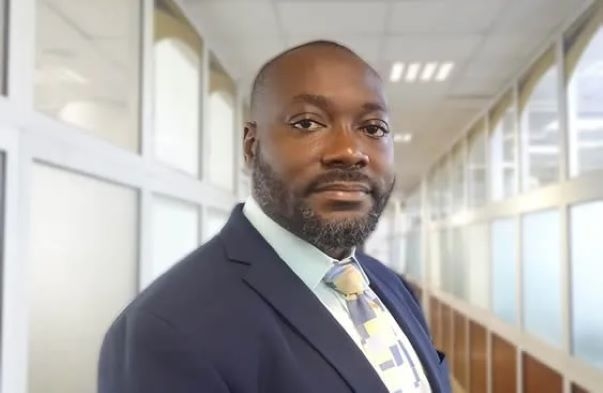New GNPC boss: The in-tray
 Opoku-Ahweneeh Danquah
Opoku-Ahweneeh Danquah
The newly appointed acting Chief Executive Officer (CEO) to the Ghana National Petroleum Corporation (GNPC), Mr Opoku-Ahweneeh Danquah, has an excellent profile, which is believed to more than qualify him for the job, particularly with his background as the Deputy Chief Executive (DCE), Technical Operation. However, he may be confronted with a tall list of challenges that he must overcome if he is to succeed.
First, he is coming in at a time when the balance sheet of the organisation is in the negative, compared to his predecessor who inherited a positive and a stronger balance sheet some five years ago.
Meanwhile, the present call on GNPC to focus on its stated mandates and turn the organisation into a world-class operator demand that the organisation is financially sound to take up available opportunities and confront the threat imposed by the energy transition.
The new CEO is therefore faced with the daunting task of positioning the GNPC as a viable organisation capable of living up to the Ghanaian expectations, amidst its negative cash position coupled with the delay in getting paid the huge debt owed the entity by particularly state-owned organisations (SOEs).
Second is the “subordinate loyalty” he must earn from his own colleagues. The fact remains that he is a family member of President Nana Akufu-Addo, a situation that can turn against him if not well-managed.
He must deal with the “family and friends” tag, prove that he earned the position on merit, and be ready to work with a team, or else his authority will be challenged and undermined, particularly during his early days at post.
He needs to work to excel at post and persuade the team at GNPC and external stakeholders to buy into his vision, in order to establish his authority.
Any attempt to use high handedness to whip people in line will only weaken his position, and open him up for disrespect and unnecessary confrontations.
The next is, the clout and credibility needed to lead such a huge organization that has become the envy of every politician because of the kind of investments it holds for the State, and the size of cash it controls. Many are wondering whether Mr Danquah possesses that clout, credibility and influence; those vital ingredients that get people to follow you in a direction you point to and gets things done.
Past CEOs, including Messrs Tsatsu Tsikata, Alex Mould and Dr Kofi Sarpong, have proven that the GNPC needs someone who commands respect from both industry and political circles to lead and attract the support of multiple stakeholders, and most importantly the President of the Republic.
These personalities proved that they were influential, intelligent industry personalities cum politicians with a lot of respect in and outside the oil industry; and that was credited to their success.
The fourth challenge he has on his hand is how he manages the egos of the other two Deputy Chief Executives, Messrs Benjamin Kweku Acolatse and Joseph Dadzie, over whom he has been promoted.
He has to intelligently deal with that.
He must employ all professional means to handle any feeling of rejection on the part of the two colleagues now-turned subordinates by reason of his promotion into the acting CEO position.
The two respected gentlemen remain valuable resources for Mr Danquah, and he must exploit that.
The fifth challenge envisaged is stepping into the shoes of a big man who feels he still has the energy to serve his government and country.
Dr Kofi Sarpong is a savvy, conservative, and intelligent businessman doubling as a politician.
With his clout, he has built an army of faithful and loyal political appointees and staff at the GNPC and within the industry, as a whole, over the last 5 years when he ran the organisation.
If the acting CEO is believed and seen as being against Dr Sarpong, his works and allies, these loyalists can turn against him, because human beings love stability over change.
This is a great challenge confronting him should Dr Sarpong choose to undermine him from outside the walls of GNPC. Mr Danquah must therefore take active steps to manage their relationship to his advantage.
Finally, stakeholder management could be his bane or blessing depending on how he handles that. This is an industry with a lot of stakeholders with varied expectations, with some conflicting ones.
If the new CEO gets their expectations right, it will help attract and maintain that social license to lead and govern. He must first initiate the discussions on what each individual or group expects, then the management of their concerns follow with the intentions of meeting the needs, resolving issues and conflict situations; all in a bid to advance the upstream industry.
The Springfield-Eni impasse and the GNPC-Aker Energy deal await him as a test of his character.
Trending Features

Russia–Africa:New horizons for old friends
09:23
Justice for sale: When poverty becomes a barrier to the Rule of Law
10:13
Lithium: A billion-dollar mineral, a withdrawn bill, and a country at a crossroads
15:14
When silence speaks louder than words
12:12
Project finance: A viable path to build Ghana’s infrastructure without overstretching or overburdening public Debt Ghana is facing mounting fiscal and infrastructure financing pressures
10:24
As awareness campaigns fade, new HIV infections rise
09:48



